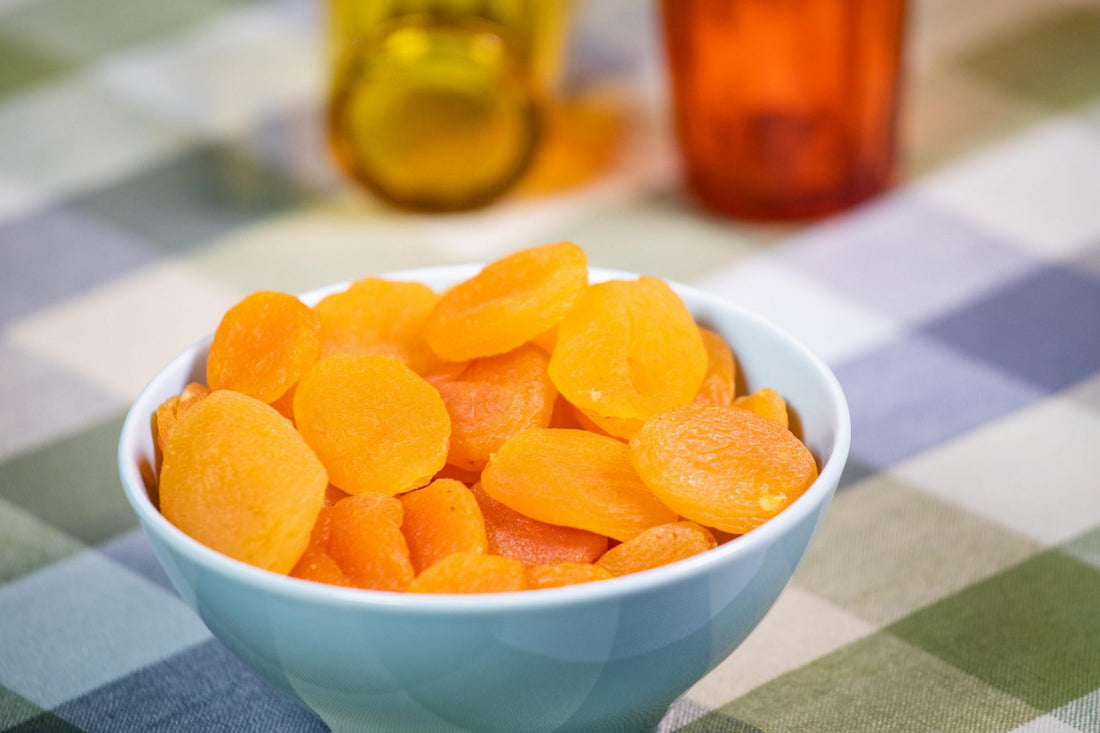Apricots, known as "khumani" in Hindi, are delicious and nutritious fruits loved worldwide. In this comprehensive guide, we dive into everything you need to know about apricots, from their impressive health benefits to the best ways to store them.
Health Benefits of Eating Apricots
Quick Summary: Apricots are packed with health benefits, including improved digestion, enhanced eye health, glowing skin, and potential cancer-fighting properties.
In-Depth Benefits: Here’s a closer look at what apricots can do for your health:
- Digestive Health: High fiber content aids digestion and prevents constipation.
- Eye Health: Loaded with vitamins A and C, supporting good vision and reducing the risk of age-related eye disorders.
- Skin Health: Antioxidants help protect your skin from damage and improve its appearance.
- Heart Health: Potassium helps regulate blood pressure, reducing heart disease risk.
-
Bone Health: Contains calcium and other minerals essential for strong bones.
Calories and Nutritional Value of Apricots
Quick Summary: A medium-sized fresh apricot (35g) has about 17 calories and is rich in vitamins, minerals, and fiber.
Nutritional Breakdown: Here’s what you’ll find in a medium-sized apricot (35g):
| Nutrient | Amount |
|---|---|
| Calories | 17 |
| Carbohydrates | 3.9g |
| Fiber | 0.7g |
| Protein | 0.5g |
| Fat | 0.1g |
| Vitamin A | 13% of Daily Value (DV) |
| Vitamin C | 6% of DV |
| Potassium | 4% of DV |
Apricots also contain small amounts of vitamins E and K, B-complex vitamins, and minerals like calcium, magnesium, and iron.
Possible Side Effects and Risks of Consuming Apricots
Quick Summary: Apricots are generally safe but can cause allergic reactions or digestive issues in some people. Consult a doctor if you have kidney issues due to apricots' high potassium content.
Detailed Risks: Here are some potential side effects and risks:
- Allergic Reactions: Some individuals may experience symptoms like itching, swelling, or difficulty breathing.
- Digestive Issues: Overconsumption can lead to bloating, gas, or diarrhea due to high fiber content.
- Kidney Concerns: High potassium levels may be problematic for those with kidney issues or on certain medications.
- Tooth Decay: Natural sugars in apricots can contribute to tooth decay if oral hygiene is neglected.
- Drug Interactions: Apricots may interact with certain medications, particularly blood thinners.
Ways to Incorporate Apricots into Your Diet
Quick Summary: Enjoy apricots fresh, dried, or cooked. Add them to your breakfast, salads, baked goods, or eat them as a snack. Use them in jams, chutneys, and savory dishes.
Detailed Ideas: Here’s how to include apricots in your daily diet:
- Fresh Snack: Eat whole apricots as a quick, healthy snack.
- Breakfast Addition: Slice and add to cereals, oatmeal, or yogurt.
- Salad Topping: Chop and toss into green or fruit salads.
- Baked Goods: Incorporate into muffins, cakes, or pies.
- Smoothies: Blend with other fruits and yogurt for a nutritious drink.
- Dried Fruit Mix: Combine dried apricots with nuts for a trail mix.
- Savory Dishes: Use in tagines, curries, or as a meat accompaniment.
- Jams and Preserves: Make homemade apricot jam or chutney.
- Grilled Fruit: Grill halved apricots for a unique dessert.
How to Select and Store Fresh Apricots
Quick Summary: Choose firm, plump apricots with a rich orange color. Avoid bruised or overly soft fruits. Store ripe apricots in the refrigerator for up to a week, or at room temperature to ripen.
Detailed Tips: Here’s how to select and store apricots for the best quality and taste:
-
Selection:
- Look for fruits with a rich, orange color.
- Choose apricots that are slightly soft but not mushy.
- Avoid fruits with bruises, blemishes, or
Best Ways to Select and Store Fresh Apricots
Quick Tips: Choose firm, plump apricots with a vibrant orange color. Avoid bruised or overly soft fruits. Store ripe apricots in the refrigerator for up to a week, or at room temperature to ripen.
Selection Tips
- Look for fruits with a rich, orange color.
- Choose apricots that are slightly soft but not mushy.
- Avoid fruits with bruises, blemishes, or green patches.
Storage Tips
- Ripe Apricots: Store in the refrigerator for up to a week.
- Unripe Apricots: Keep at room temperature to ripen, then refrigerate.
- Speed Up Ripening: Place apricots in a paper bag with a banana or apple.
Freezing Tips
- Wash, halve, and remove pits.
- Treat with lemon juice to prevent browning.
- Freeze on a tray, then transfer to freezer bags.
Conclusion
Apricots, or "khumani" in Hindi, are versatile and nutritious fruits that offer numerous health benefits. From supporting digestive health to potentially fighting cancer, these small fruits pack a powerful nutritional punch. By incorporating apricots into your daily diet through various creative methods, you can enjoy their sweet flavor while reaping their health benefits. Remember to select and store them properly to ensure the best quality and taste. Whether you prefer them fresh, dried, or cooked, apricots are a delightful addition to any healthy eating plan.






